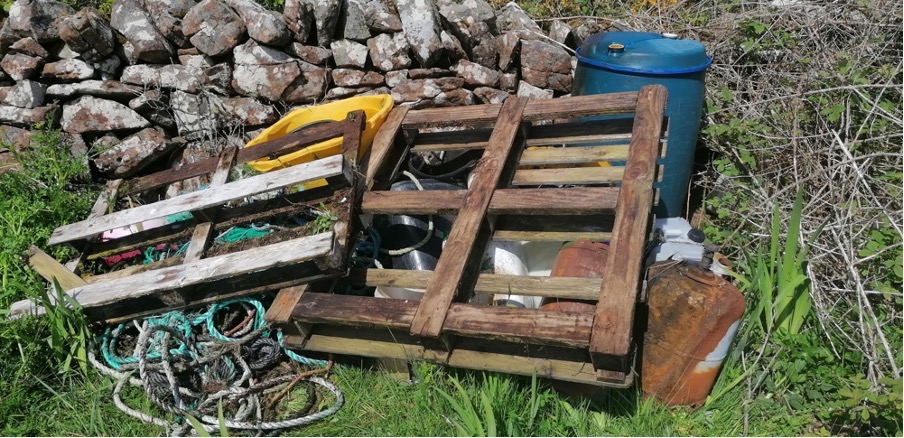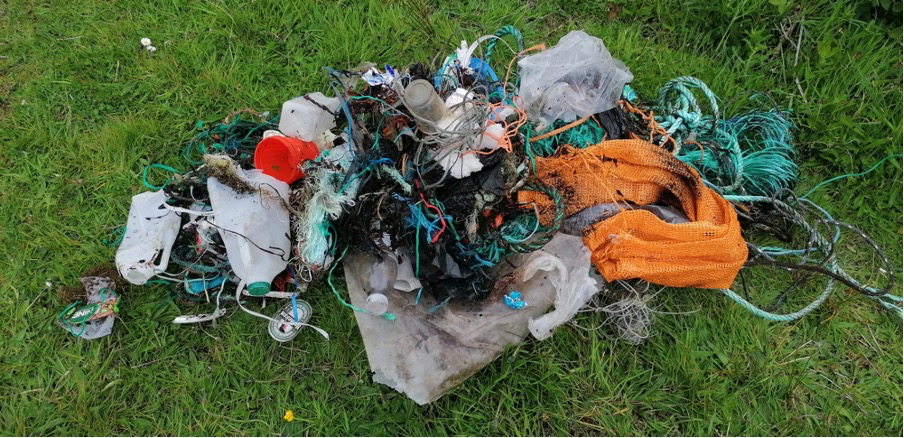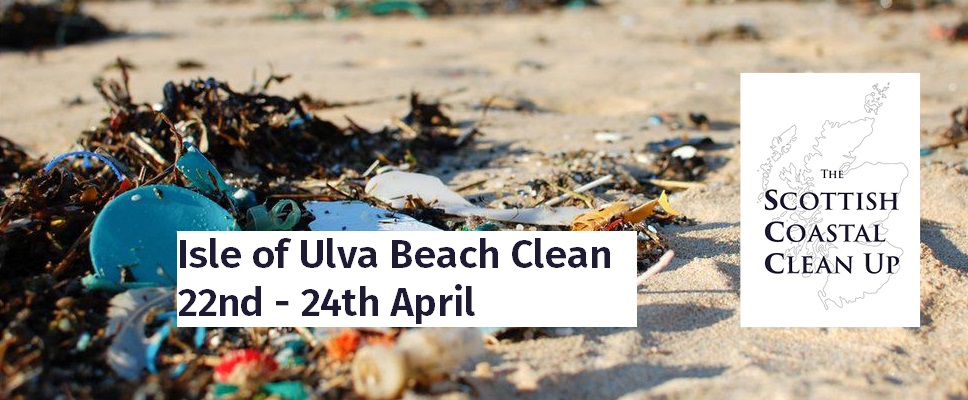As part of our Scottish Coastal Clean Up initiative, where we have set the ambitious goal to remove 70% of marine debris from the Scottish coastline over the next five years, we are pleased to announce our first beach cleaning event of 2022.
Between Friday 22nd April to Sunday 24th April, a small team of volunteers are heading to the beautiful island of Ulva, located off the coast of Mull. This island, particularly on the south side, has been identified as a key target area for cleaning marine litter due to the way in which the ocean currents bring lots of debris ashore. We will be removing as much litter as possible and will use boats to reach more difficult to reach areas where litter has gathered. The boats will also help us in removing the litter from beaches to be taken to a designated sorting zone where we will separate rubbish into recyclable and non-recyclable material.
We will stay on Ulva for the entire weekend, picking up as much litter as possible, with additional volunteers from the local community, schools and businesses coming to help at various times over the weekend.
Why is it so important that we clean our beaches?
Most of us would hopefully agree that litter spoils the beauty of our beaches, which offer so much to human lives for recreational, health, and economic reasons, and as a role in mitigating climate change. Therefore, beach clean ups are essential to improve and maintain our coastal and ocean ecosystems.
Beaches are an important habitat for many species of plants and animals. Many threatened bird species in the UK, such as little terns, ringed plovers, oyster catchers, sandwich terns, redshanks and gulls rely on coastal environments to feed, nest, and raise their young. Marine mammals such as grey seals and harbour seals spend lots of time hauled out on beaches to rest and digest food, as well as to give birth to their young. As well as this, there is also tiny organisms that live in the sand and play an essential role in nutrient recycling and seawater filtration.
Beaches that are covered in marine litter jeopardise the lives of all these species. A wide range of animals that live on beaches have been reported to become entangled in marine litter, which can lead to impaired movement, severe injury or even death. There are also many reports of species ingesting marine litter which can result in the species ability to capture or eat natural food and sense hunger. It also causes lacerations and ulcers in the body and illness from poisoning, and these will often lead to death.
Micro plastics, which can be purposefully manufactured or derived from the breakdown of larger plastic items, are also a huge environmental issue that affects wildlife and humans. With the help of boats, we hope to remove larger litter items, as well as the items that can be hand-picked and carried.
To minimise the amount of litter going straight to landfill, we have partnered with Ocean Plastic Pots so that any rope or fishing net collected will be made into recyclable plant pots, and anything else that can be reused or recycled will be separated out.
We believe that we can all help to do our bit to clean and remove marine litter from our beaches to make them a healthier and safer environment for ourselves and our wonderful wildlife.
Want to find out more about the Ulva Beach Clean?
Volunteers are welcome to join us for the weekend or to come for a day. We should be able to provide all equipment needed (bags, litter pickers, gloves) if you let us know of your attendance, but please feel free to bring your own if you have it. It is possible to camp on the island for free, or you can book accommodation on Ulva or Mull. Accommodation on Ulva is limited and so you may have more options on Mull.
The only crossing from Mull to Ulva is operated by Donald Munro. This is a privately run foot passenger ferry, but bicycles can be transported for a small extra fee. Ferry times, current news about the ferry and how to contact the ferryman is available on The Ulva Ferry Facebook page. However, we are arranging additional ferry crossings over the weekend for volunteers.
If you are interested in volunteering and would like more information, please feel free to email kate@caledonianhorticulture.co.uk



